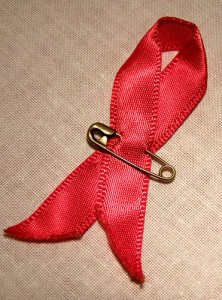Zied Mhirsi is a Tunisian doctor, blogger [1] and activist, currently based in the United States, who is dedicated to fighting the spread of HIV/AIDS in the Middle East and North Africa. In September 2008 he started a blog called HIV in the Arab World [2] [Ar], which monitors Arab media coverage of HIV/AIDS.
A wide range of subjects are covered in the blog, such as an awareness-raising campaign [3] [Ar] in Tunisia, reasons for the spread of AIDS in Iraq [4] [Ar], and a Saudi religious scholar's opinion [5] [Ar] on the permissibility of marrying a person with HIV/AIDS.
In this post, Zied tells Global Voices Online about his work, and how it all began.
What prompted your interest in working in the field of HIV/AIDS?
A family member died of HIV/AIDS when I was 11. This was in the 80s and at that time there was nothing we can do. This event shaped my life and made HIV/AIDS become part of the issues that are dear to me. During my medical school, I joined the Tunisian Association Against AIDS [7] (Association Tunisienne de Lutte Contre le Sida) and never left the HIV field ever since. I worked in Tunisia, Lebanon and Sudan so far and I’m looking forward to help my colleagues and friends in more countries.
What are the greatest challenges for people living with HIV in the Arab world?
Stigma and discrimination is definitely on the top of the list. Stigma is partially due in my opinion to the fear-creating approach that our governments and activists adopted as a main prevention message. Fear is often paired with ignorance and stigma is a consequence of this mix. Stigma makes it more difficult to convince people to get tested, and hence to get treated. It also contributes in denying basic rights to those who are infected and does not allow them to have security regarding their future (work, family…).
When did you start the HIV in the Arab World [2] blog, and who are you aiming at?
I believe in the power of media in changing behaviours and bringing awareness. For many years Arab media has been neglecting the issue of HIV/AIDS and during the last years I observed some changes in the way they framed HIV/AIDS. I created this to better follow the way Arab media reports about AIDS and to offer to those interested a webpage that collects all the articles that talk about this epidemic in the MENA [Middle East and North Africa] region. It is also a way for me to keep connected with the MENA HIV news.
You also have a Facebook group [8] associated with the HIV in the Arab World blog – who is it for?
I left the region in 2007 and moved to the United States where I work for the department of Global Health at the University of Washington. This move made it difficult for me to keep in touch with my friends and colleagues from the region. I created this Facebook group to reconnect with my friends and to offer an opportunity for activists and HIV/AIDS professionals to meet and discuss about the issues that are important to them. It is a primarily a networking tool and also a forum where news and emerging issues are discussed. The group is open only to those who are working in the field and has already more than 42 members from all over the Arab world.
How many HIV-positive people are there in Tunisia? Can you describe the work of the Tunisian Association Against AIDS [9] [fr]?
Tunisia’s HIV epidemic is relatively small (3000 estimated cases/10,000,000 inhabitants). We estimate the prevalence to be one of the lowest in the world. This is due to male circumcision, a good healthcare system, conservative sexual behaviours and the government/civil society’s work. There is however a lot that needs to be done in order to prevent the disease from spreading larger. These actions include a need to target vulnerable groups with better designed prevention interventions and more work on the policy and epidemiology level.
I joined the Tunisian HIV association in 1997. This NGO is the largest and one of the most popular ones in Tunisia. We work in the areas of HIV prevention, care and support, and advocacy. We cover the Tunisian territory with more than 5 local offices and we participate in many international activities and networks that represent to us a source of funding and partnerships.
